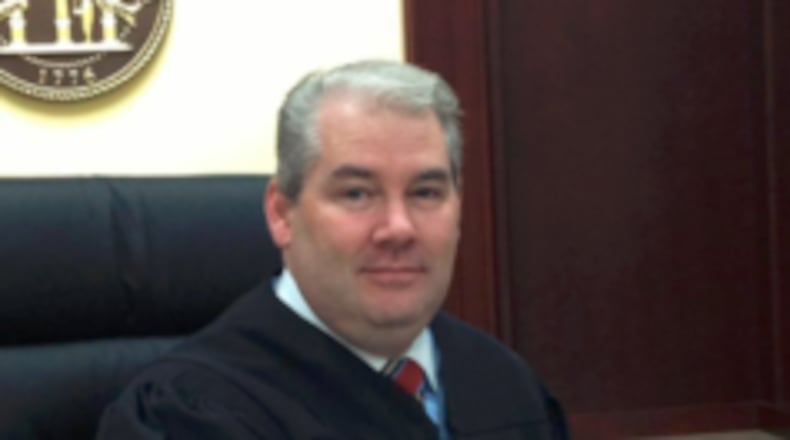The state judicial ethics agency on Monday dismissed charges against a Cherokee County judge over comments he posted on social media after the arrest of the suspect charged with killing eight people at three metro Atlanta spas.
Last July, Superior Court Judge David Cannon was accused of six violations of the code of judicial conduct. But the Judicial Qualifications Commission’s three-member hearing panel agreed to dismiss the case, noting the matter was addressed with a “non-public resolution.”
Hearing panel member Richard Hyde, an investigator for the Balch & Bingham law firm, wrote in a concurring opinion that a larger issue remains unresolved.
“Left for another day is a significant question raised by Judge Cannon: To what extent, if any, does a Georgia judge leave his or her First Amendment rights at the courthouse door?” Hyde asked. “This hearing panel and our Supreme Court should give unambiguous direction on this issue.”
He added, “We must also do a better job of educating judges as to the appropriate use of social media.”
Attorney Lester Tate, who represented Cannon, agreed.
“This question of what judges can say or post on social media continues to be a constitutional puzzle, of sorts,” Tate said. “It has not been definitively decided by the courts.”
Cannon took to social media after Capt. Jay Baker, a spokesman for the Cherokee County Sheriff’s Office, was criticized for what he said about Robert Aaron Long, who later pleaded guilty to the fatal shootings at a Cherokee spa. (A capital prosecution is still pending against him in Fulton County.)
Credit: Alyssa Pointer / Alyssa.Pointer@ajc.com
Credit: Alyssa Pointer / Alyssa.Pointer@ajc.com
Long was “pretty much fed up and kind of at the end of his rope,” Baker said at the time. “Yesterday was a really bad day for him and this is what he did.”
Cannon, posting on Facebook, said he believed Baker was summarizing what investigators had told him. “And Jay was not saying from Jay’s perspective that the accused had a bad day,” the judge wrote. “Feel free to disagree, but read the transcript first!”
Cannon has since acknowledged he should not have posted about an ongoing case, even though it had already been assigned to another judge, Tate said. As for the resolution, “I was extremely pleased with the outcome of the case and so was Judge Cannon.”
Chuck Boring, director of the state watchdog agency, said the judges should expect to be closely scrutinized by the public. For that reason, they “must accept restrictions on their conduct, including social media activities, that might be viewed as burdensome by the ordinary citizen.”
Judges should also be mindful that their posts and commentary on social media can run afoul of the code of judicial conduct, particularly with regard to pending cases or issues that are likely to come before them in court, Boring said.
About the Author
The Latest
Featured



